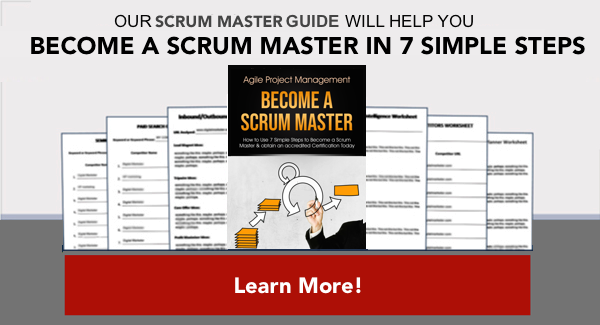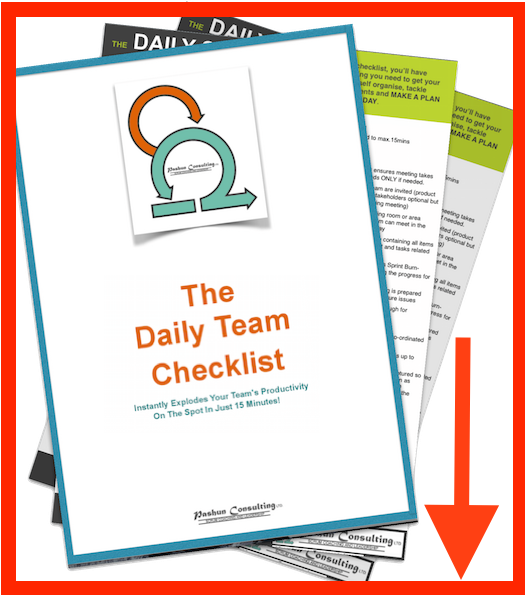We all want to deliver projects on time, right? Did you know that the Scrum Master role can help you to get the job done?
When we want to get our end product out of the door on time, the scrum master usually understands how to aid the product owner in maximising return on investment from the business. He helps the whole team to work together to be as productive as humanly possible and deliver a shippable increment of the product.
A scrum master should understand the rules of scrum to an expert level. This means that anyone in the organisation and any stakeholder should be able to rely on the scrum master for advice on the framework. It requires the ability to coach, mentor and build relationships with people at all levels of business. The role often requires a great deal of confidence and strength. This is because others may not share the experiences or beliefs of the scrum master and therefore they must often be convinced that scrum’s practices will solve their issues. This is why influence, persuasion and leading by example are such important traits for scrum masters. A scrum master is a coach to the scrum team, and therefore strong interpersonal skills are necessary. The team should feel comfortable explaining any issues and the scrum master should be happy to help even on the busiest of days.
The relationship with the product owner is just as important as the relationship with the team. The ability to understand how to assist, motivate and coach the product owner can turn projects around. For this reason, one will need to understand the personal characteristics of the product owner as well as what scrum requires of him.
(NOTE: Want to learn how to become a scrum master to facilitate teams and deliver projects on time? Check out the Become A Scrum Master In 7 Simple Steps Guide so you can learn the steps you REALLY need to make your team more productive! Get your Become a Scrum Master In 7 Simple Steps Guide now.)
A traditional project manager often performs the role of scrum master. This can have both pros and cons. In this role we manage the framework without managing the people. However, traditional project managers may be from the “command and control” background, which is averse to the belief in “self-organizing teams”. Therefore, I suggest that any candidate should be ready to embrace and see the value in this new way of thinking. To be fair, many of the best non-scrum project managers I have worked with made their name by empowering teams of experts to make decisions and knowing how to manage the process. Good traditional project managers usually have the key interpersonal and process management skills that all projects can benefit from.
Prior technical or product domain experience is a strong plus since there are often situations that require you to empathise with the team and help them to solve problems. For example, experience in solving common problems such as setting up databases, breaking down large problems into small ones or just plain keeping solutions simple in the first place. This experience also helps the team, since the person in this role can often explain technical issues to the product owner and stakeholders without involving the team, hence leaving them to get on with the work.
In order to become a scrum master, as with all things it is important to have a simple plan. Strict execution of a simple plan will surely pave the road to this goal and allow us to add value to any team or project.
(NOTE: Want to learn how to become a scrum master to facilitate teams and deliver projects on time? Check out the Become A Scrum Master In 7 Simple Steps Guide so you can learn the steps you REALLY need to make your team more productive! Get your Become a Scrum Master In 7 Simple Steps Guide now.)


